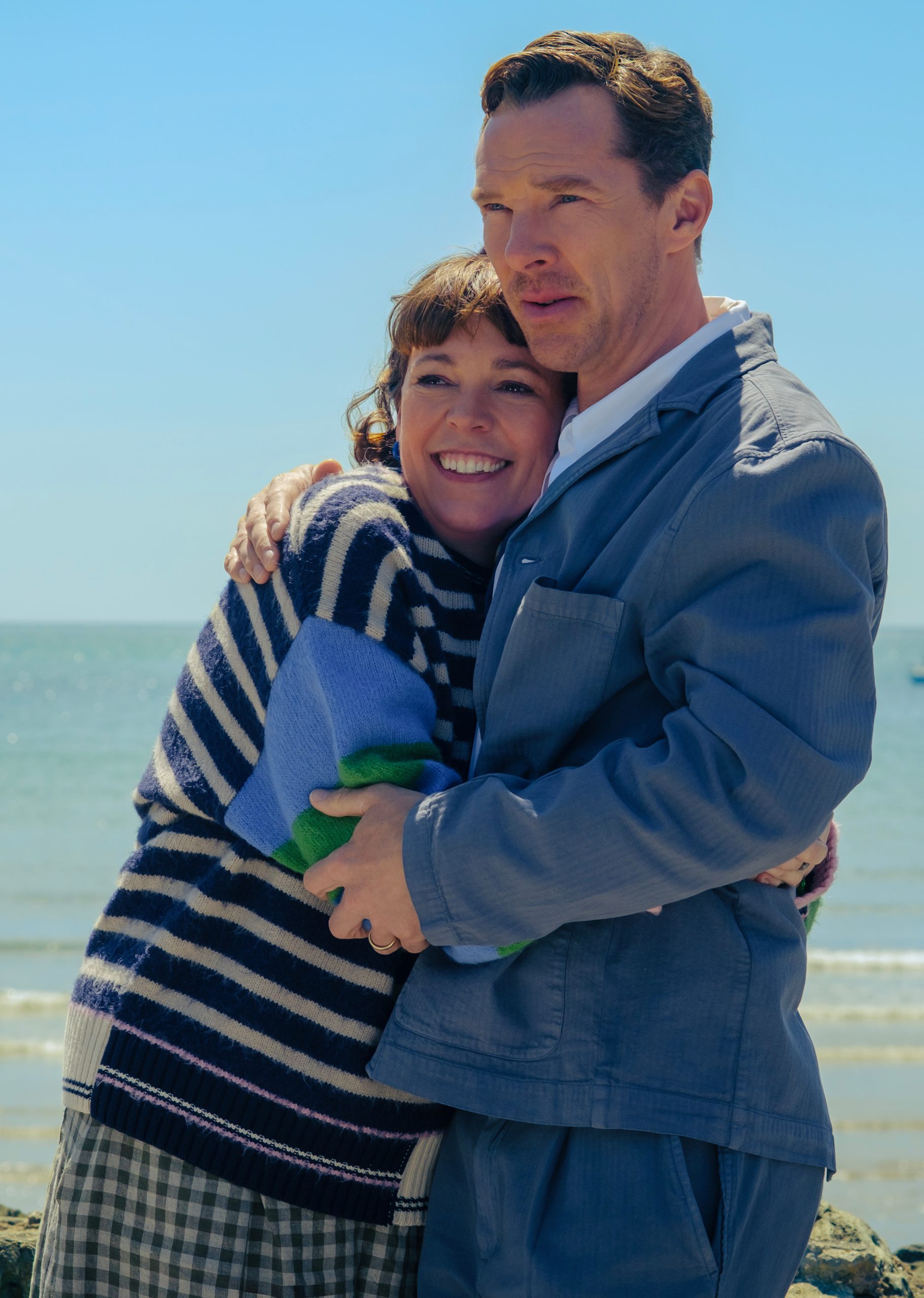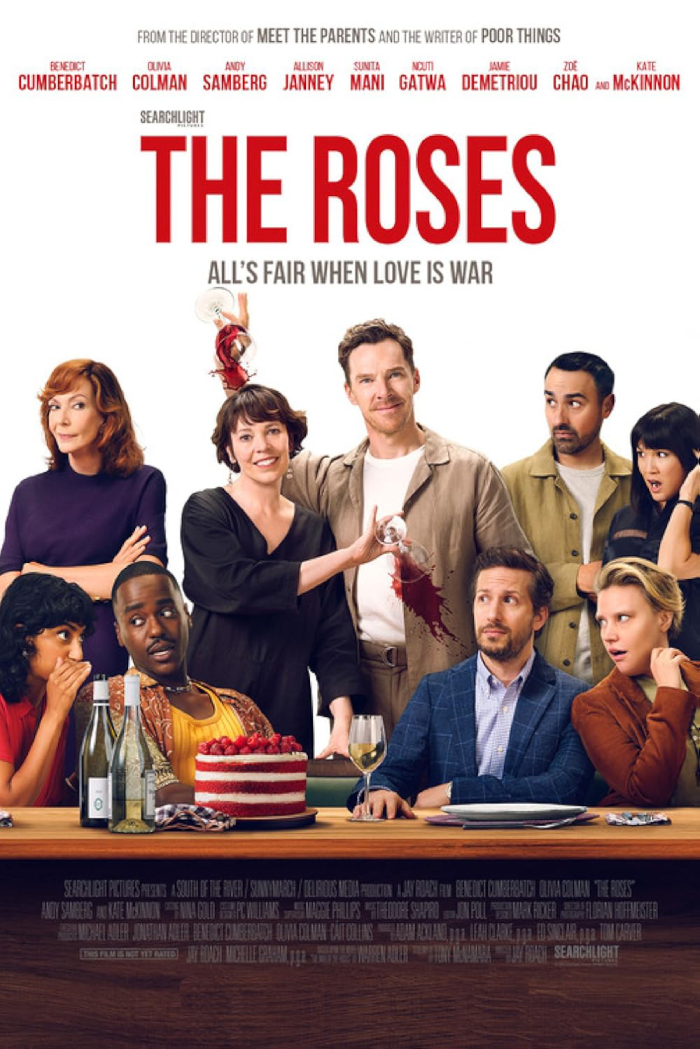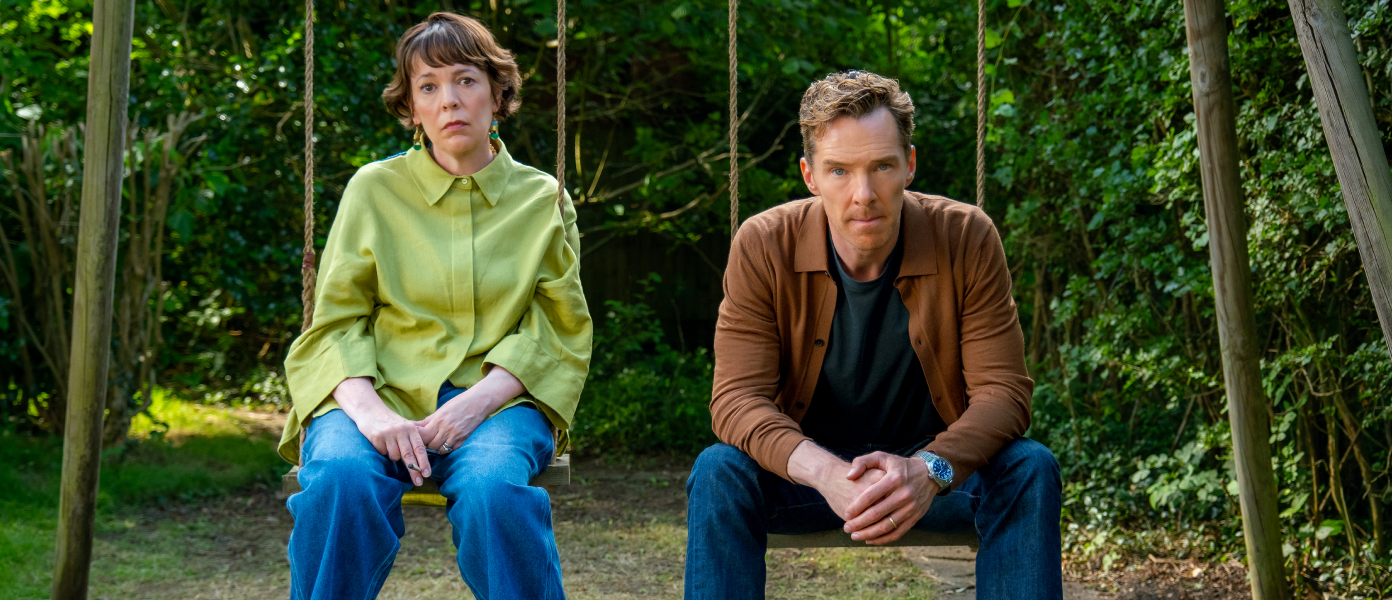![]()
A tinderbox of competition and resentments underneath the façade of a picture-perfect couple is ignited when the husband’s professional dreams come crashing down.
The original 1989 film “The War of the Roses” was markedly darker and more vicious in tone than its new remake. As a teenager, I approached it with great anticipation, mainly because I had enjoyed the earlier on-screen pairings of its stars, Michael Douglas and Kathleen Turner, in “Romancing the Stone” and “The Jewel of the Nile.” Expecting another lighthearted adventure, I was instead met with a film that bore little resemblance to its predecessors, lacking their charm and offering a far more somber narrative centered on marriage and divorce—a subject that, at the time, held little appeal for me. Unsurprisingly, I never revisited it.
In this new adaptation, “The Roses,” Olivia Colman and Benedict Cumberbatch step into the roles played initially by Douglas and Turner. Their casting is inspired, bringing a fresh dynamic to the story. The remake introduces considerably more humor, and for much of the film’s first half, the couple appears genuinely content, with only minor setbacks. Yet, as expected, this tranquility is short-lived; the relationship soon devolves into a contest of wit and will, escalating to outright attempts at sabotage, all laced with biting, often hilarious, exchanges.
Colman’s character, Ivy, is an ambitious restaurateur who meets Theo (Cumberbatch), a successful architect, while working in a London restaurant. Their connection is immediate and intense, leading to a whirlwind romance. A decade later, they are settled in California with two children, Hattie and Roy. Ivy has put her career on hold to focus on their family, while Theo’s professional life thrives. Aware of Ivy’s sacrifices, Theo surprises her by purchasing a property for her long-awaited restaurant. Though the location is remote and the establishment opens only a few days a week, Ivy is content—she values creative freedom more than commercial success.
 The turning point comes during the opening night of Theo’s latest architectural project, a naval history museum, which is destroyed by a disastrous storm, derailing his career and making him the target of online ridicule. In response, Ivy takes on running the restaurant full-time while Theo manages the household. When a renowned food critic praises Ivy’s restaurant, her career rapidly ascends; her brand expands, and her time becomes increasingly consumed by her work. Resentment grows on both sides. In an effort to salvage their marriage, Ivy uses her earnings to finance Theo’s dream of building them a house by the sea.
The turning point comes during the opening night of Theo’s latest architectural project, a naval history museum, which is destroyed by a disastrous storm, derailing his career and making him the target of online ridicule. In response, Ivy takes on running the restaurant full-time while Theo manages the household. When a renowned food critic praises Ivy’s restaurant, her career rapidly ascends; her brand expands, and her time becomes increasingly consumed by her work. Resentment grows on both sides. In an effort to salvage their marriage, Ivy uses her earnings to finance Theo’s dream of building them a house by the sea.
Theo’s bitterness eventually gives way to renewed purpose, and three years later, he completes a spectacular home. Still, the marriage cannot be saved. Ivy publicly belittles Theo at dinner among friends, while Theo realizes he no longer loves her and seeks a divorce. His only request is to keep the house, but Ivy refuses, determined to leave him with nothing. The situation quickly escalates from acrimony to all-out war.
Colman and Cumberbatch are ideally cast, capturing the nuances of a relationship that moves from passionate partnership to mutual antagonism. Their early scenes are marked by genuine affection and support, making their subsequent unraveling all the more poignant. The film’s British sensibility is evident in its acerbic, often understated humor—a style that may resonate particularly with audiences familiar with English wit. The ongoing verbal sparring between Ivy and Theo is sharp and frequently laugh-out-loud funny. In one memorable therapy scene, Theo laments that he often cannot tell when Ivy is angry, to which Ivy retorts, “Sometimes he’s got his cock in me and I can’t even tell!” Eventually, their mutual animosity erupts into physical conflict.
While this remake is less bleak than the original, it does not shy away from darkness. Director Jay Roach, known for the AUSTIN POWERS and MEET THE PARENTS series, wisely allows his stars to dominate the film. Supporting performances from Andy Samberg and Kate McKinnon are competent but largely peripheral, as Colman and Cumberbatch command the audience’s attention throughout.
The film provides a thoughtful exploration of marital breakdown. Early on, Ivy and Theo are depicted as deeply in love, and the authenticity of their bond is convincing. The eventual dissolution of their relationship is not the result of betrayal or abuse, but rather the accumulation of unaddressed issues. Both characters are hesitant to communicate their vulnerabilities—initially out of consideration, later due to a sense of futility. As a result, their marriage ceases to be a place of solace, and the foundation crumbles.
Despite being described as a dark comedy, the film is punctuated by moments of genuine hilarity, mainly due to the chemistry of its leads and the incisive script. Beyond the humor, it offers a compelling examination of the corrosive effects of rivalry and resentment in a failing marriage. Although the supporting cast is effective, it is ultimately Colman and Cumberbatch’s performances that leave a lasting impression.
Now available on Digital, and on Blu-ray™ and DVD November 25th

